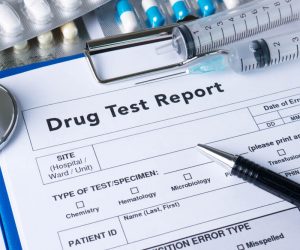How Long Does Cocaine Stay In Your System?

Timeline and Factors That Influence How Long Cocaine Stays In Your System
Drug screenings are often used by workplace employers and at addiction treatment centers to detect the presence of cocaine in your system. Knowing how long cocaine stays in your system is a critical aspect of the methodology used in this type of drug testing.
Most people who abuse cocaine are seeking the euphoric feelings, excitement, energy bursts, and increased self-confidence that this drug provides. It’s a substance that can be abused in different ways, by smoking, snorting, or injecting it.
The pleasurable effects that cocaine usually provides last about 30 minutes. During that time, you’ll feel very alert, talkative, like you can overcome or do almost anything and may feel sexually aroused.
When that 30-minute window has passed, though, a crash follows that makes you feel anxious, nervous, and very tired.
Approximately one hour is how long cocaine stays in your system before it leaves your bloodstream. Because cocaine is quickly metabolized, it’s difficult to detect this substance in many screening tests when too much time has elapsed after taking the drug.
How long cocaine stays in your system depends a lot on the size of your body, how fast your metabolism works and how hydrated your system is.
Timeline For Detecting Cocaine
Every drug has a half-life, which is the amount of time needed for the substance’s active ingredients to be reduced in half. A drug’s half-life will depend on many of the same elements described above about how long cocaine stays in your system.
Cocaine has a short half-life. There is a longer timeline for detecting the presence of a cocaine metabolite, though, that can remain in certain parts of the body for a more extended period than the actual drug does. This metabolite is called benzoylecgonine. How long cocaine stays in your system will vary depending on different factors including:
- Urine – Detecting cocaine in urine drug screens is one of the more accurate and most common ways to test for this substance’s presence. Cocaine can be detected via urine screening for as long as three days after use. For heavy users addicted to cocaine, the drug can be detected up to 14 days after its last use.
- Blood – A simple blood test can screen for cocaine in the blood for as long as 12 hours after use. It can also detect benzoylecgonine 48 hours later.
- Saliva – The cocaine metabolites can also be present in saliva, and the presence of cocaine can be found in saliva up to two days after using the drug.
- Hair – Benzoylecgonine metabolites can be detected in hair follicles for as long as three months following the use of cocaine. The accuracy of this drug screening technique will depend on where the hair sample was taken from.
Factors That Influence How Long Cocaine Stays in Your Body
It’s not easy to find the most accurate detection time window for how long cocaine stays in your system. The factors that influence how long cocaine stays in your system include:
- Body Fat – Cocaine metabolites tend to accumulate in fatty tissue, where it remains for a longer period of time.
- Alcohol Use – When you drink alcohol, it attaches to cocaine, slowing down its release from your system. The same effect occurs when you drink caffeinated beverages.
- Dehydration – Cocaine remains in your system longer when you aren’t taking in enough fluids. Water, for instance, increases your elimination of cocaine.
- Physically Active – When you engage in higher levels of physical activity, cocaine is excreted from your system more quickly. You’re metabolizing it more rapidly.
Effects of Cocaine Addiction
Having a cocaine addiction can cause some severe health issues. Using cocaine regularly can result in:
- Headaches
- Seizures
- Cardiac disease
- Mood disorders
- Sexual dysfunction
- Lung damage
Other effects, such as hepatitis, bowel decay, and nose damage, can occur depending on the ways you take the drug.
Cocaine Addiction Treatment at WhiteSands
WhiteSands Alcohol and Drug Rehab offers excellent cocaine addiction treatment that’s individualized to fit your needs. Beginning with detox, our professional team treats this disease with counseling, therapy, and medications to see your way to long-lasting recovery. Please visit our facilities in Florida today or call one of our intake specialists today.
If you or a loved one needs help with abuse and/or treatment, please call the WhiteSands Treatment at (877) 855-3470. Our addiction specialists can assess your recovery needs and help you get the addiction treatment that provides the best chance for your long-term recovery.
